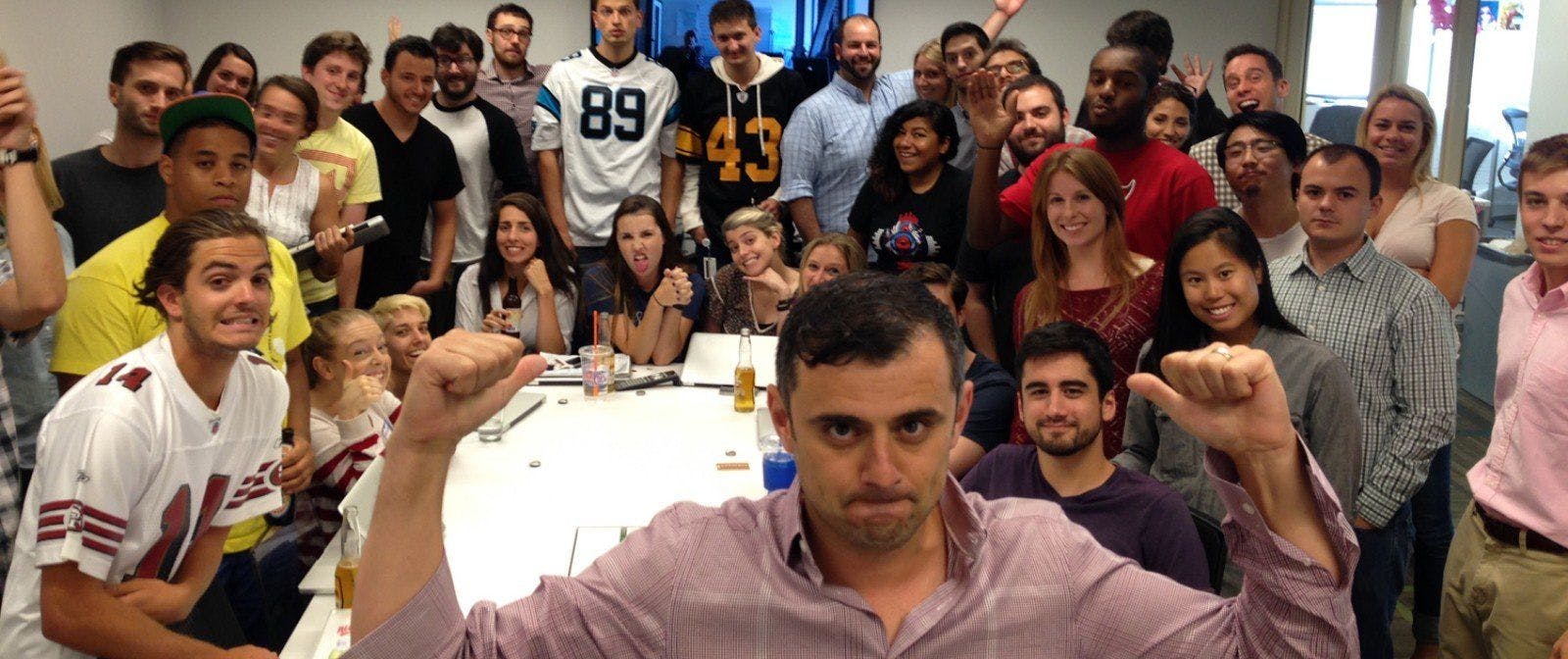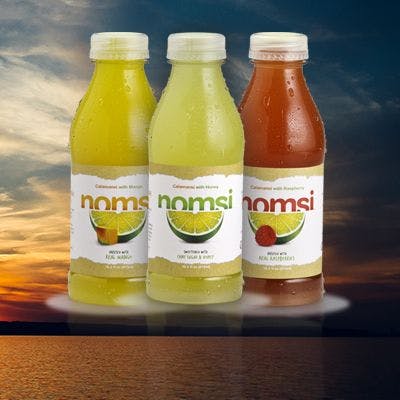The Relevance of 6

By Adam Kleinberg
This week I was quoted in a story in Ad Age about the disgruntled customer who bought a Sponsored Tweet to complain about British Air. Apparently, social media superhero, Gary Vaynerchuk, read the quote and was quite disgruntled about what I had to say. So disgruntled, he created a video rant and blog post about it.
This week I was quoted in a story in Ad Age about the disgruntled customer who bought a Sponsored Tweet to complain about British Air. Apparently, social media superhero, Gary Vaynerchuk, read the quote and was quite disgruntled about what I had to say. So disgruntled, he created a video rant and blog post about it.
He even got 37 disgruntled people to pose for a photo about it.
This week I was quoted in a story in Ad Age about the disgruntled customer who bought a Sponsored Tweet to complain about British Air. Apparently, social media superhero, Gary Vaynerchuk, read the quote and was quite disgruntled about what I had to say. So disgruntled, he created a video rant and blog post about it.
He even got 37 disgruntled people to pose for a photo about it.

Now first let me say: Gary, you are a gentleman. I do appreciate you not "flaming" me and I appreciate you starting your response by acknowledging that "tone is lost in text" and that you're "sure there was more context around it."
That said, I can take the heat. I'll flame myself here because I really do think the context around what I said is important.
What did I say that caused Gary's ire?
"...With someone with six followers who's on Twitter and who makes a nasty tweet, it's completely irrelevant."
It does sounds awful when I look at it. When I saw it, I have to admit I checked the comments on the Ad Age story twice that day, positive that someone was going to jump down my throat on this. Sure enough, @garyvee made a YouTube video .
That said, it would be a cop-out to say it was off the cuff and I misquoted. It was off the cuff, but I was not misquoted.
Gary essentially makes two points about this clueless "CEO of a social media agency" (that being me) and his despicable quote. I'm going to address each of them:
Human beings are not irrelevant.
Gary points out in boldface (and sets up a photo shoot with not irrelevant 37 people) to make the point that he's...
... "not exactly sure how six human beings can be irrelevant, but that's a different story for a different day."
The question I was answering was about practical advice for brands in terms of how they should respond to complaints on Twitter. I don't think any unhappy customer is irrelevant to any business. An unhappy customer is not a repeat customer. An unhappy customer also talks about how unhappy they are to people they know. Those people are less likely to be customers next week.
If you read my blog, you'll know that I've been preaching for a decade that for any brand, it's the experience that matters. As a matter of fact, Traction's own mission is "to be a respected creative agency where the experience getting there is as great as the work itself."
We value that experience because I believe—and the people I started this business with believe—that no person is irrelevant. Not a single employee, not a single clients and ultimately not a single one of their customers. The experience we provide has to be great.
That said, I do believe a tweet can be completely irrelevant . It can be. If no one sees it, it's irrelevant.
It's not about numbers. It's about influence.
The title of Gary's blog post was "It's Not About the Numbers." Anyone can be influential and the thing that's really irrelevant is being "focused on follower count."
So anyway, Sally retweets this, and she has 39 followers, which is probably still "irrelevant" by our friend's point of view. Now let's say one of those 39 people happens to be her friend from college... who happens to be a showrunner on The Today Show. What if that happens? What if that showrunner brings the story to the producers and all of a sudden you're leading off the next episode of The Today Show?
He continues...
You don't need to go viral. You just need to get in front of the right person. Hell, you could have two followers... Oprah and Obama. Now all of a sudden that follower-count feels a lot less important, right? This absolute number thing is stupid. It's very stupid. Every consumer's word does matter because word of mouth is now at scale and has the infrastructure to go anywhere.
Whew.
So, there was a lot nuance to this conversation. First, I don't disagree with anything Gary says here. In the sentence before the quote that Gary rants about , Cotton paraphrases our conversation:
"Gauging whether the person doing the complaining has any influence is also an important precursor to a brand plunging into a public Twitter exchange, according to Traction CEO Adam Kleinberg."
I stand by this. Big brands can't respond to every single tweet out there. Cotton asked me for practical advice for brands managing their social media presence and I gave it to her.
Sometimes you should respond—I often tell the story about when Citrix rapidly responded to a frustrated tweet I made about GoToMeeting ten minutes before a presentation with a link to an FAQ that solved my problem. They turned an angry customer into an evangelist in moments.
But other times, it doesn't make sense. Sometimes responding publicly only fans the flames. As Gary points out, "all it takes is for one tweet to be noticed by one person." Responding publicly could turn that one tweet into three or four that are three or four times as likely to be noticed by that one person. Not to mention all of your Twitter followers.
All brands have limited resources. Therefore, they need to triage. If you're not familiar with the concept of triage, let me share what I learned when I took Emergency Response training in San Francisco.
When there is a giant earthquake or other disaster, lots of people get hurt. Emergency teams have limited resources to help those people. They can only do so much, so they have a system to prioritize where they can do the most good. They literally go around and write on people with magic markers to rank them. Minor injury? Bottom of the list. Almost dead? Bottom of the list. Pregnant woman with pretty bad injury that looks treatable? Top of the list.
The system of triage is designed to make the most life-saving impact as possible with limited resources. Cold as it may seem, in the interest of the greater good, the people at the bottom of the list are irrelevant.
Does it mean that human beings don't matter? God no.
What I rambled on about for fifteen minutes and what Cotton succinctly summarized was that there is software that brands can use to measure influence. Yes, it measures if you only have six followers. It also measures how many followers each of them have and how much engagement you have with your followers (and other a few other factors) and comes up with an influence score.
Are those tools perfect? No. Do they allow large brands to somewhat triage the firehose of chatter on the internet? Absolutely. Is it feasible that two of this Twitterer's followers are Obama and Oprah? Sure. Likely? Not so much.
My practical advice was that brands need to triage and figure out what is most relevant for them to respond to within whatever resource constraints they may have.
What is not relevant is irrelevant. That's just grammar.
Wrapping up, I'll just say to Gary that I appreciate your discretion in not calling me out and I appreciate where you're coming from, but I think there's a lot of nuance to this discussion. I'll be in NY in late September for Advertising Week, so if you can get me on the Today Show, I'll be happy to have this discussion with you.
Otherwise, I'm up for a beer.

Traction is second best in the West.

Digiday recently posted a write-up on Traction's move into the realm of media buying.

After twelve years as an agency, Traction recently got a taste of the client's life after partnering with the Pacific Fruit & Beverage Company to bring calamansi juice to the mainstream American market.
